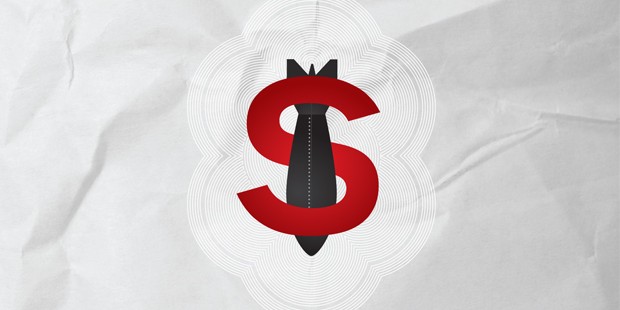I just delivered the following remarks to the UN General Assembly Open Ended Working Group on taking forward multilateral nuclear disarmament. I thought it would be interesting to bring out the idea of divestment into this forum. The chair seemed to appreciate it, and it sparked a bit more discussion on the question of how a ban treaty could incorporate this idea.
Thank you Mr. Facilitator
I want to raise something, a building block to a nuclear weapons free world, that hasn’t been much discussed in this chamber, namely, removing the financing from nuclear weapons producers. a prohibition on financing nuclear weapons could become part of an international treaty banning on nuclear weapons, and will hopefully be considered in those negotiations.
Divestment sends a clear signal to defence contractors, the financial sector and governments that any involvement in the nuclear weapons industry is unacceptable. It reinforces the illegitimacy of nuclear weapons based on their potential for catastrophic humanitarian harm. 
The active support of financial institutions will contribute substantively to worldwide efforts to irreversibly eliminate nuclear weapons. Divestment from nuclear weapons companies is an important way for all financial institutions including banks, insurers, pension funds and asset managers to contribute to the delegitimization of nuclear weapons, challenge programmes to modernize existing nuclear arsenals, and prevent nuclear weapons proliferation. The ultimate aim of divestment is to force nuclear weapons companies to withdraw from the nuclear weapons industry.
Financial institutions should not invest in companies that produce illegal weapons. International law prohibits all states from using or threatening to use nuclear weapons, and imposes a universal obligation to pursue and achieve the complete elimination of nuclear weapons. Nations must refrain from engaging in activities that would make nuclear disarmament less likely or impossible to achieve.
While there is no specific treaty-based prohibition on investing in companies that produce nuclear weapons, some regional nuclear-weapon-free zones prohibit states from assisting or encouraging the manufacture of nuclear weapons. This prohibition could be interpreted to also cover investments, depending on the nature and size of the investments.
Latin American Nuclear‐Weapon‐Free Zone Treaty: Nations must not take any action “to assist or encourage” the development or manufacture of nuclear weapons inside or outside the zone.\
South Pacific Nuclear Free Zone Treaty: Nations must not do anything “to assist or encourage the manufacture” of nuclear weapons by any other nation, whether it is in the zone or not.
African Nuclear‐Weapon‐Free Zone Treaty: Nations must not “take any action to assist or encourage the research on, development, manufacture … of any nuclear explosive device”.
Southeast Asian Nuclear‐Weapon‐Free Zone Treaty: Nation must “refrain from engaging in, encouraging or authorizing, directly or indirectly, … manufacture … of any nuclear weapon”.
Additionally, some nations have enacted domestic legislation prohibiting companies from facilitating the manufacture of nuclear weapons. For example, in Australia it is a crime for a person or company to do “any act or thing to facilitate the manufacture, production, acquisition or testing” of nuclear weapons anywhere in the world. Other nations have specifically legislated against investment in war materials, including nuclear weapons.
Generally Mr. Facilitator, I just wanted to add a little something different to the discussions in this room, something that will hopefully become a part of a treaty banning nuclear weapons.

